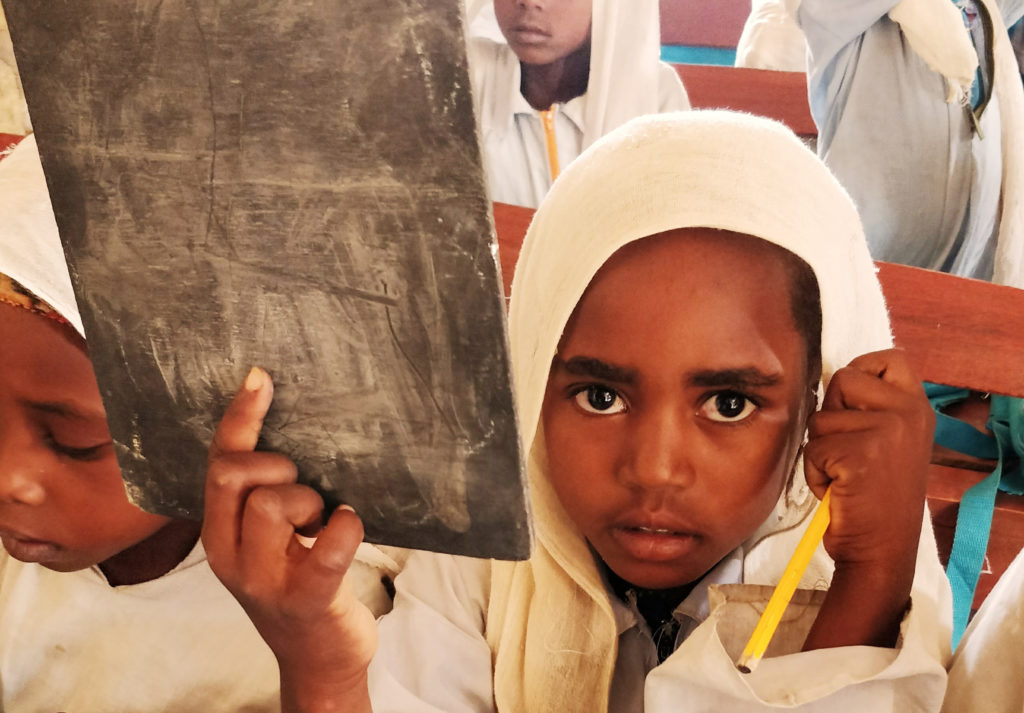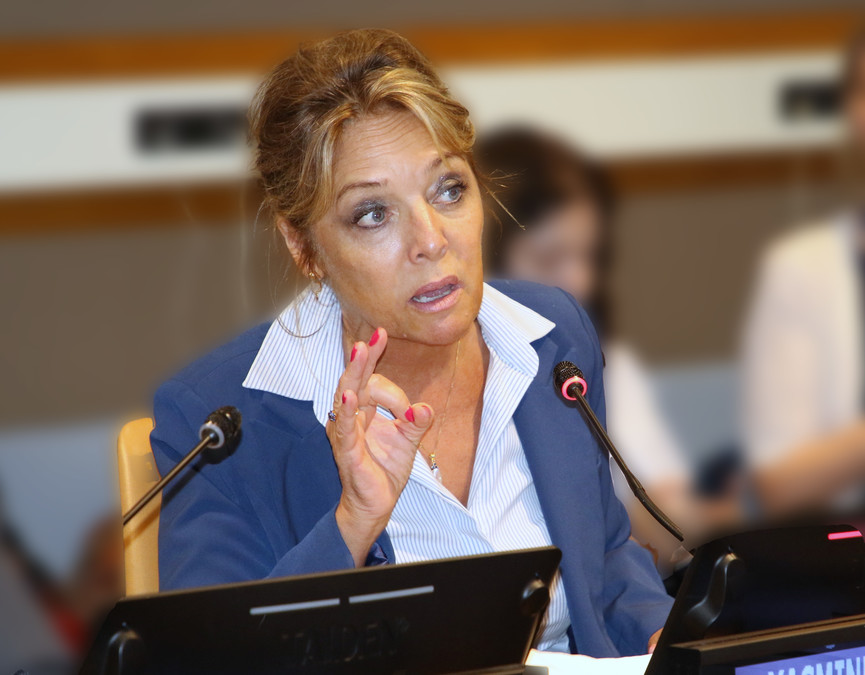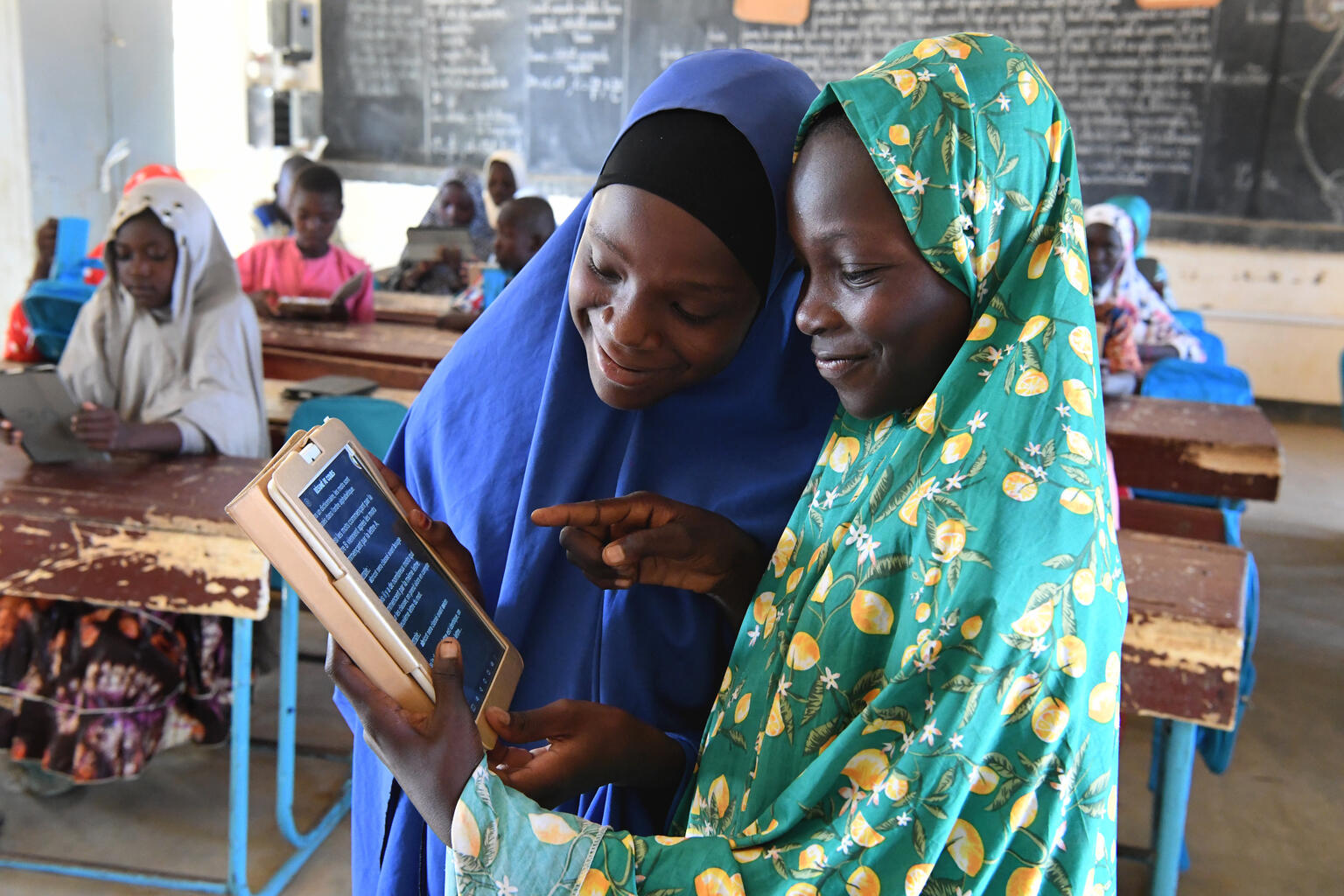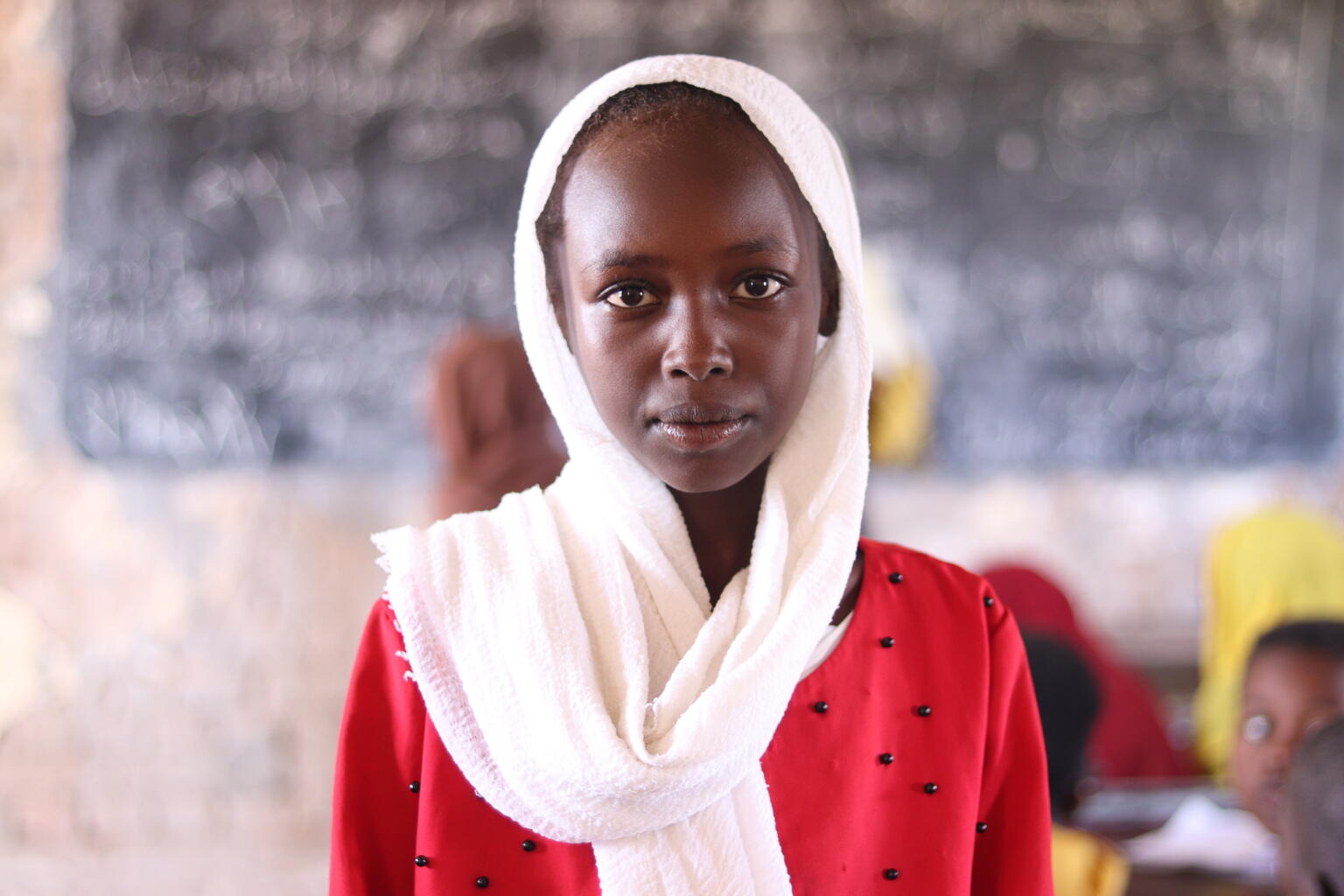Opinion: World Leaders Can and Must Do More for Girls’ Education in Emergencies

By Yasmine Sherif and Stephen Twigg
Originally published on Devex
16-year-old Kwanye’s education came to an end after militants started kidnapping girls from her school. She lives in the Lake Chad Basin, where one of the world’s most severe and underreported humanitarian crises has left 2.2 million people displaced, half of them children. The conflict has already claimed her parents and siblings and left her struggling to survive.
Now she reads her old school books so that she doesn’t forget. “I always thought education would give me a better life,” she said. “I can’t go to school when I can barely afford to eat.”
Right now, around the world, there are 39 million girls, who, like Kwanye, have had their education disrupted as a direct result of humanitarian crisis. Of these, 13 million have been forced out of school completely. That’s the equivalent of three girls for every girl in school in the U.K. — three girls whose full potential may never be realized.
World leaders are starting to listen, but more can be done to tackle this. In 2015, they launched the Sustainable Development Goals, promising that every young person completed a good quality education by 2030. Yet a new report published this week by Plan International UK warns that they are way off-track. At current rates of progress, it will be a further 150 years before the goal is reached. By 2030, 1 in 5 girls in crisis-affected countries still won’t be able to read a simple sentence.
For girls affected by crisis, education is a lifeline — and it mustn’t just be primary but a full 12 years of education. Adolescent girls are particularly vulnerable in times of disaster or conflict due to their age and gender. They’re more likely to be married by 18 than to finish school. They’re at greater risk of exploitation, gender-based violence, and early pregnancy. In fact, there’s a two in three chance they won’t even start secondary school.
Education can offer these girls a safe space to learn and develop the skills they need to thrive and contribute to the peaceful recovery of their communities. Secondary education also provides an entry point for girls to access health services including mental health support and information about staying safe during natural disasters.
There are some signs of progress. In 2016, the Education Cannot Wait fund, which delivers life-changing education for girls and boys living in humanitarian crises, was established and continues to receive strong and growing support, including from the U.K. government.
Nevertheless, funding for education in emergencies remains much too low, especially for secondary education. As Plan International UK’s report shows, governments and the international community need to take much bolder action if they are to deliver on their promises.
That’s why we’re calling on the U.K. government to build on its leadership to date, including by increasing support for the Education Cannot Wait fund to £75 million ($94.7 million) over three years and supporting the fund to increase the amount it allocates to secondary education.
However, this is a global challenge and requires a global response. All governments and donors must play their part.
In times of crisis, girls want to be able to go to school. They want to be doctors, pilots, and engineers. They want to rebuild their countries. But too often their dream remains just that.
Right now, millions of girls are being left behind, and without committed political leadership, increased resourcing, and targeted action, their chance for a decent education may be lost forever. We can and must do more. Their right is our obligation.
About the authors

Yasmine Sherif
Yasmine Sherif is the director of Education Cannot Wait, a global fund for education in emergencies and protracted crisis established at the World Humanitarian Summit and hosted by UNICEF. A human rights lawyer with 30 years of experience in international affairs, Yasmine joined the United Nations in 1988 and served in New York, Geneva, and in crisis-affected countries in Africa, Asia, Balkans, and the Middle East.

Stephen Twigg is a Labour MP and chair of the U.K.’s International Development Select Committee. He was previously shadow secretary of state for education and served as a government minister from 2001-2005, first as deputy leader of the House of Commons and later as an education minister.




